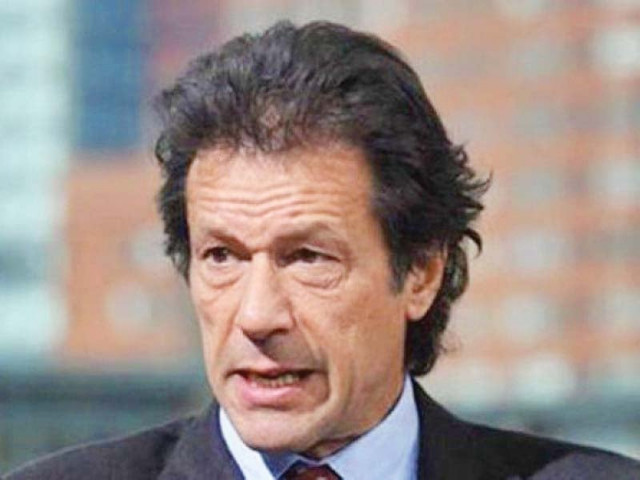PTI’s rigging allegations : ECP prepares to defend itself before judicial body
Uncertain about explaining the role of returning officers, field staff

Imran Khan. PHOTO: FILE
The Election Commission of Pakistan (ECP) is in a quandary over how to exculpate the returning officers (ROs) from the anomalies committed during the May 11, 2013 general elections.
On the direction of the judicial commission that is tasked to establish the validity of the polls, the ECP is preparing its reply against allegations raised by Pakistan Tehreek-e-Insaf (PTI).
Imran Khan’s PTI and around two dozen other political parties, as well as 45 individuals have approached the commission, which invited political parties on April 16 to submit concrete evidence of rigging on a large scale.
The three-member commission also directed the ECP to file its response over the charges before the April 23 hearing. And accordingly the ECP’s legal wing is working round the clock to prepare its response which will be submitted before the commission by Thursday.
Sources close to the ECP told The Express Tribune that the commission is confident about how it will rebut the PTI charges, raising a number of points about the allegations.
But at the same time it is aware that has no compelling explanation about issues related to last-minute changes made in the polling schemes, anomalies regarding post-poll result forms 14, 15 and 16, and reported tampering of bags that contained the ballot records.
Most of these matters are related to more than 1,000 ROs, who were taken from the lower judiciary and assigned the task to supervise the election process.
A month before the general elections, the ECP on April 4, 2013 deprecated the ROs and had come up with a public statement where it avowed that omnipotent ROs were not under its control. However, the statement was withdrawn from the ECP’s official website later on.
Under the law, the ROs prepare the polling scheme and send the same to the ECP for final approval. In case of any complaint from contesting candidates, the ROs are empowered to make changes in the polling scheme.
The ROs also have a key role in deployment of polling staff at the polling stations and in selection of the presiding officers and their assistance staff – the people who actually conduct the polls in the field.
The PTI questions arbitrary changes in the polling schemes, failure of the ECP in executing its proposed centralised result management system, changes made in nomination papers before the polls, provision of excessive ballot papers at the polling stations, flaws in the electoral rolls, dubiety in the appointment of four members of the commission and more than 100% turnout in certain polling stations.
“The 2013 elections were held with numerous unauthorised and unlawful changes to the final polling scheme for constituencies and without a final polling scheme in Balochistan in violation of sections 8 and 9 of the 1976 Act,” says the PTI in its 46-page preliminary statement.
The PTI claims that questionable changes in the polling schemes had adverse impact in around 93 constituencies –of both the National Assembly and provincial legislatures.
According to ECP officials, it will be incorrect to say that all the ROs made such changes with any wrong intention because in most of the cases there were valid reasons to make changes.
“Contesting candidates approach the ROs seeking changes in the polling schemes. Sometimes they have valid reasons. Their opponents oppose it. In such a situation, the RO has to take a decision – accept the plea or reject it. One party will be happy over the RO’s decision while the other side will feel aggrieved,” said a senior official.
Published in The Express Tribune, April 20th, 2015.




1724319076-0/Untitled-design-(5)1724319076-0-208x130.webp)














COMMENTS
Comments are moderated and generally will be posted if they are on-topic and not abusive.
For more information, please see our Comments FAQ